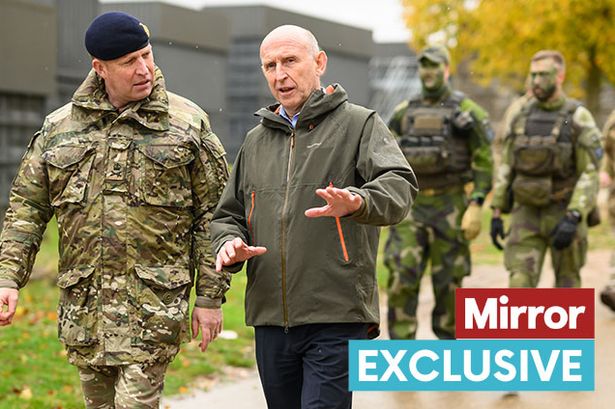The British Army is poised to embark on a significant military exercise in Romania, a two-month-long operation involving thousands of troops designed to bolster NATO’s defense capabilities and project a strong message of deterrence against potential Russian aggression in the region. This deployment represents a substantial commitment to reinforcing the eastern flank of the alliance and demonstrating the ability to rapidly mobilize and deploy forces in response to emerging threats. The exercise will involve a complex interplay of ground troops, armored vehicles, artillery, and potentially air support, simulating realistic scenarios and testing the interoperability of British forces with Romanian and other allied units. This large-scale operation underscores the evolving security landscape in Europe and the renewed focus on conventional military readiness following Russia’s invasion of Ukraine.
The chosen location of Romania carries significant strategic weight. Situated on the Black Sea and bordering Ukraine, Romania represents a critical frontline state in NATO’s defense architecture against potential Russian expansionism. The exercise will not only test the logistical and operational capabilities of British forces to deploy rapidly to this strategically important region, but it will also serve to reassure Romania and other regional allies of NATO’s unwavering commitment to their security. Furthermore, the presence of a substantial British force in Romania sends a clear signal to Moscow that NATO is prepared to defend its members and deter any potential military adventurism. This visible demonstration of force projection is a crucial element of NATO’s strategy to maintain stability and prevent escalation in the region.
The exercise itself will encompass a wide range of military activities designed to enhance readiness and interoperability. Troops will engage in simulated combat scenarios, practicing rapid deployment and maneuver warfare tactics, including combined arms operations involving infantry, armor, and artillery. These exercises will likely test the ability of British forces to integrate seamlessly with Romanian units, emphasizing the importance of coordinated action within the NATO framework. Logistics, communications, and command and control systems will be rigorously tested to ensure efficient and effective operations in a potentially challenging environment. The exercise will also provide valuable training opportunities for individual soldiers and units, honing their skills and enhancing their operational effectiveness in a realistic setting.
The emphasis on rapid deployment reflects the changing nature of modern warfare and the need for agile and responsive forces capable of countering swiftly evolving threats. The ability to quickly mobilize and deploy substantial military power is a key deterrent against potential aggression and allows NATO to react effectively to emerging crises. This emphasis on speed and agility requires sophisticated logistical planning, streamlined command structures, and highly trained and adaptable forces. The exercise in Romania will serve as a crucial testing ground for these capabilities, allowing the British Army to refine its rapid deployment procedures and ensure its readiness to respond to contingencies across the globe.
Beyond the immediate military objectives, the exercise also carries important political and diplomatic implications. It reaffirms the strong partnership between the UK and Romania and underscores the UK’s commitment to NATO’s collective defense. The exercise serves as a tangible demonstration of solidarity within the alliance and reinforces the message that an attack on one member is an attack on all. This united front is crucial in deterring potential adversaries and maintaining stability in the region. The exercise also provides an opportunity for increased military cooperation and knowledge sharing between British and Romanian forces, further strengthening the bonds between the two nations and enhancing their ability to operate effectively together.
In conclusion, the deployment of thousands of British troops to Romania for a two-month-long military exercise represents a significant commitment to reinforcing NATO’s eastern flank and deterring potential Russian aggression. The exercise will test the British Army’s ability to rapidly deploy and operate effectively in a challenging environment, while also demonstrating NATO’s resolve and commitment to collective defense. The chosen location, the scale of the operation, and the emphasis on rapid deployment underscore the evolving security landscape in Europe and the renewed focus on conventional military readiness. The exercise carries not only military significance but also important political and diplomatic implications, reaffirming the strong partnership between the UK and Romania, strengthening the bonds within NATO, and sending a clear message of deterrence to potential adversaries. The lessons learned from this exercise will be crucial in shaping future military strategies and ensuring NATO’s continued effectiveness in maintaining stability and security in the region.














